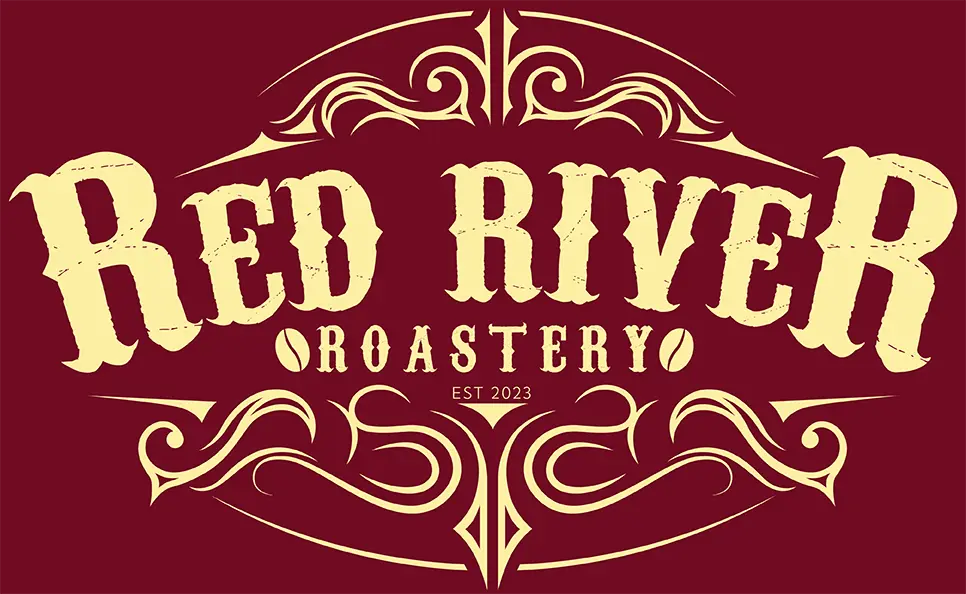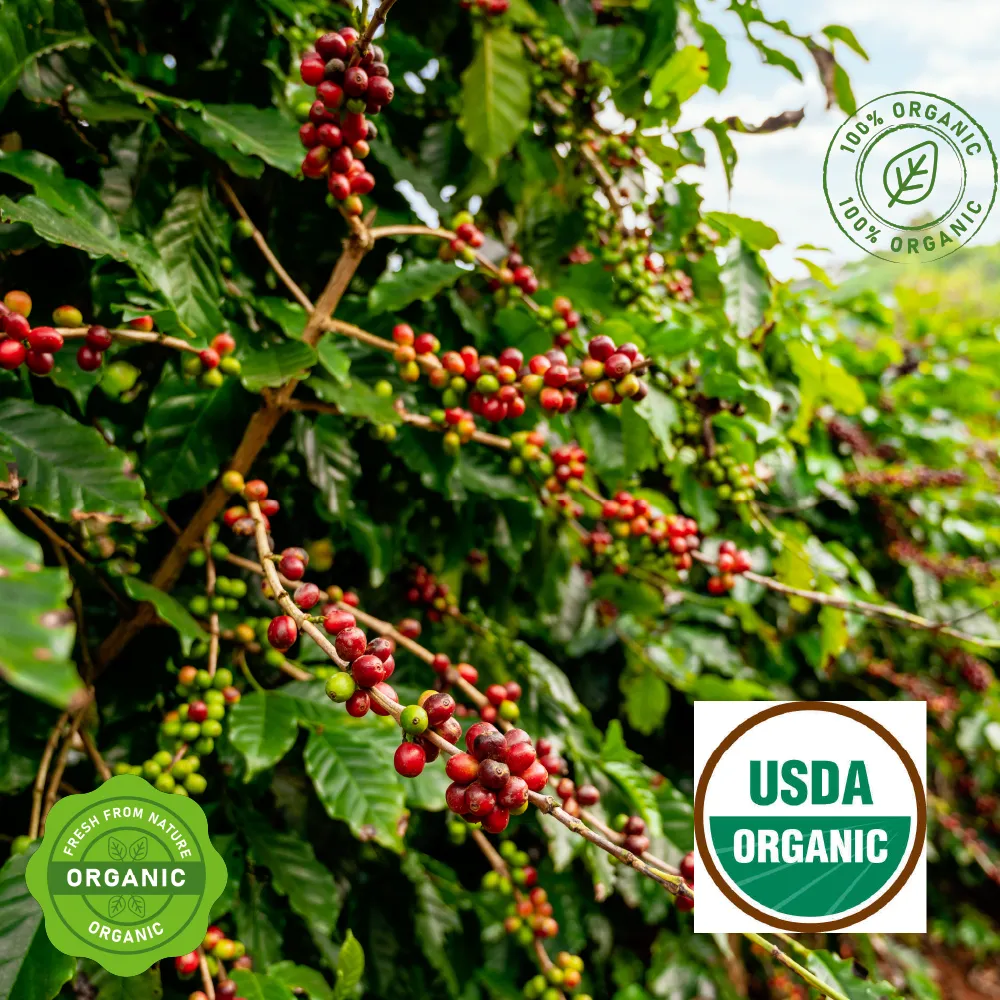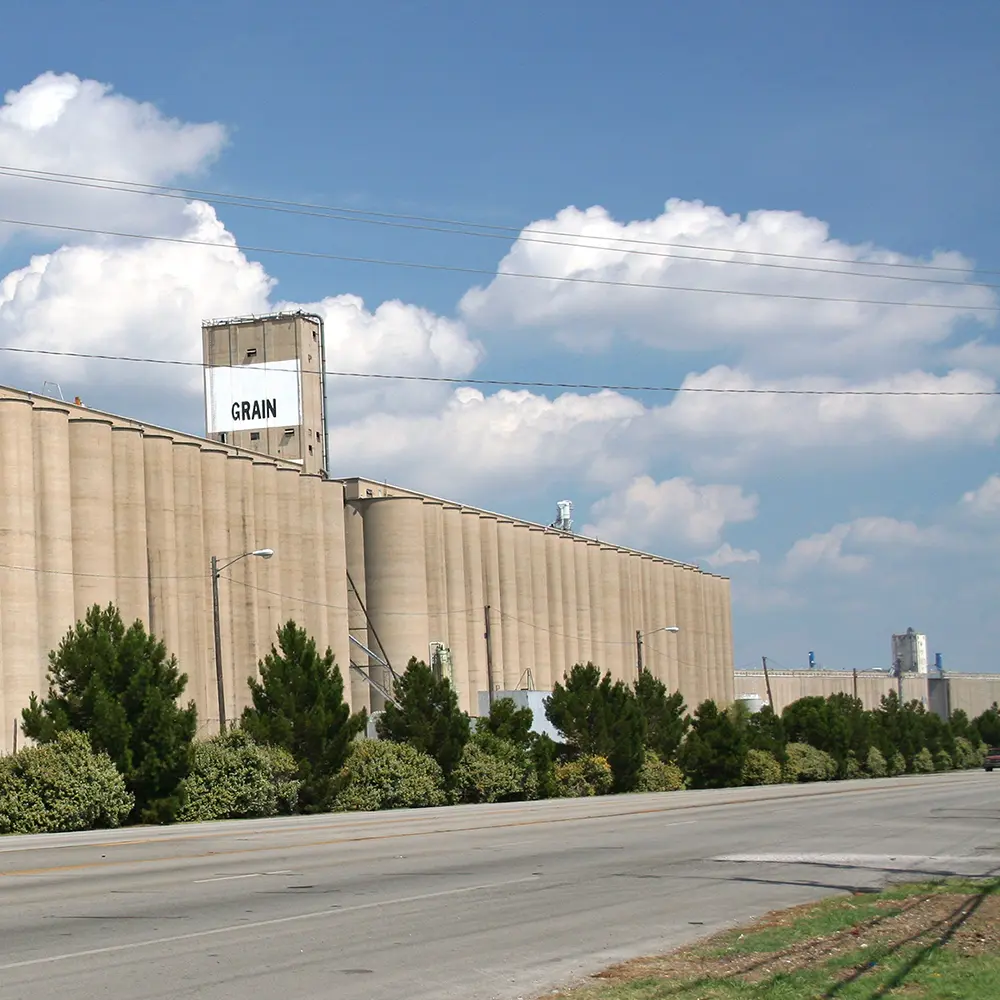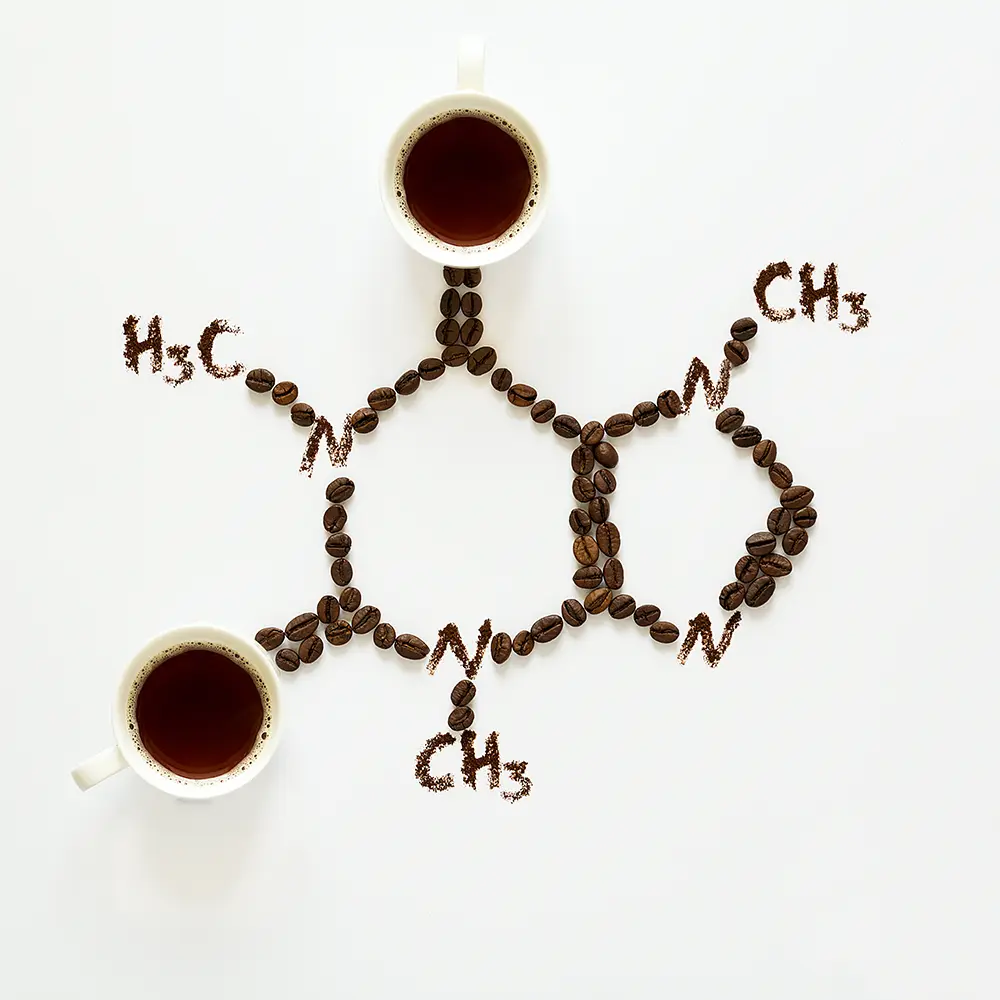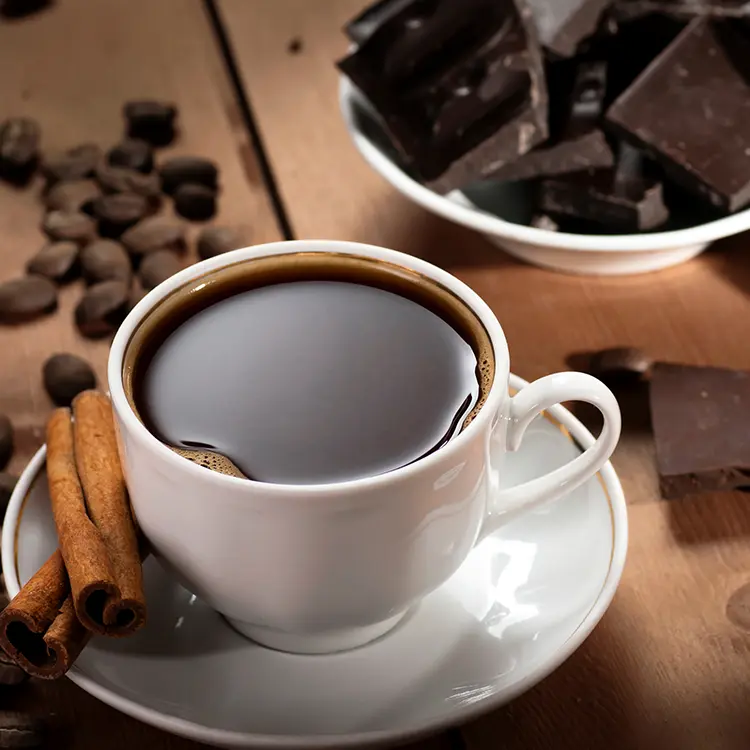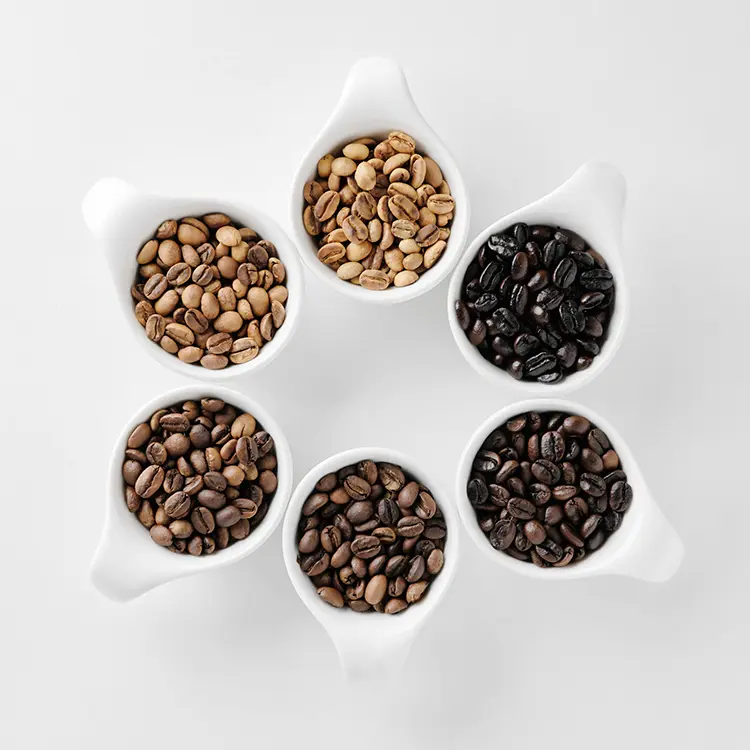
Table Of Contents
In this article, we're going to look at some of the facts you need to know about organic coffee. We'll clear up the official definitions of organic, including the difference between labels like USDA Certified Organic, Made With Organic Ingredients, and simply Organic. Plus, we'll get into the nitty-gritty about pesticides in raw coffee beans. Our goal? To demystify the world of organic coffee with straightforward facts. Most importantly, this article is not to dissuade you from buying organic coffee, but rather to give you the knowledge to make an informed decision about your coffee purchases that is best for you. Many coffee companies that market their organic coffee use tactics and wording to make it seem like regular coffee is full of toxins and chemicals.
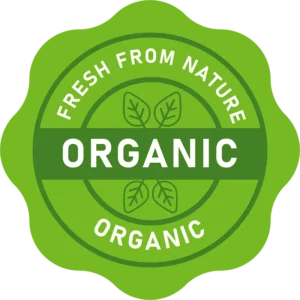
Organic Defined
Defining something as “organic” boils down to strict guidelines set by authorities like the USDA. To wear the organic label, products must meet criteria that focus on natural processes and materials. This means that (most) synthetic fertilizers and pesticides are out, while sustainable farming practices that support ecological balance are in. It's all about keeping things as close to nature as possible, ensuring what ends up in your cup is as free from unwanted chemicals as possible.
The USDA defines organic agriculture as a method that fosters cycling of resources, promotes ecological balance, and conserves biodiversity [1]. Farms must follow specific practices that vary from synthetic fertilizers and pesticides (yes you read correctly: pesticides) to soil and water quality conservation. To be labeled "organic," products need to be certified by USDA-approved agents, ensuring they meet these rigorous standards. This process ensures that what you consume aligns with strict environmental and health-focused criteria.
Three Types of Organic Labels
In the realm of organic products, labels are your guide to understanding exactly what you're buying. But not all organic labels are created equal. There are three main types you'll come across: USDA Certified Organic, Made With Organic Products, and Organic. Each label has a specific meaning, outlining the criteria a product must meet to earn its organic stripes. Let's dive into what each of these labels signifies and unravel what they truly represent to you, the consumer.
USDA Certified Organic
"USDA Certified Organic" is the gold standard for organic products in the United States. This label means the product meets strict production and processing standards set by the USDA. These standards include the use of natural substances and farming methods that promote ecological balance and conserve biodiversity.
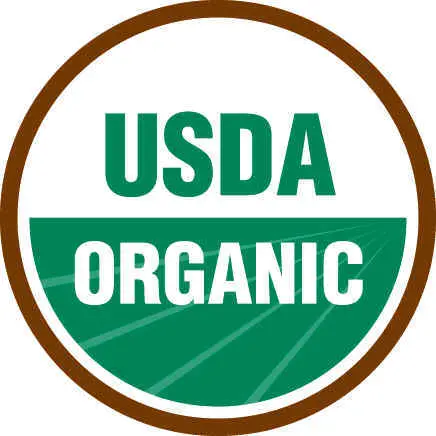
Products with this label contain at least 95% organic ingredients, with the remaining 5% being non-organic ingredients that are approved by the USDA due to being unavailable in organic form. [2]
Made With Organic Products
The "Made With Organic Products" label is for products containing at least 70% certified organic ingredients. The remaining 30% can be non-organic but must adhere to federal guidelines. [2] This label allows for a slight flexibility compared to the USDA Certified Organic standard, catering to products that can't be made entirely of organic materials but still prioritize organic components.
Organic
When products are simply labeled as "Organic," this is where things get tricky and shady marketing tactics are used. This term, unlike "USDA Certified Organic," isn't strictly regulated or legally defined, leaving room for ambiguity. [1] [2] It's a reminder for consumers to be vigilant of marketing tactics that may use "organic" as a buzzword without adhering to the stringent requirements set for certified organic products. This distinction is particularly important in realms like coffee, where the allure of "organic" can influence purchasing decisions. We find there is absolutely nothing wrong with having organic coffee, but we do find it wrong if companies are using a loosely regulated label to influence purchasing decisions (often at a higher mark-up).
Can Organic Coffee Still Have Pesticides?
It's a common belief that organic coffee is entirely pesticide-free, but this isn't always the case. Organic farming does use pesticides, but there's a catch: they must be derived from natural sources rather than synthetically manufactured. [3] These natural pesticides are chosen based on their lesser impact on the environment and human health. This approach allows organic coffee to minimize harmful chemical use while still managing pests and diseases, ensuring the sustainability and healthiness of the crop.
Within USDA regulations for organic farming, there's flexibility to use synthetic materials when no effective natural alternative exists. For instance, copper sulfate, a synthetic substance, can be utilized under specific conditions to address certain plant diseases. This approach ensures that organic farmers have tools to manage pests and diseases while adhering to organic principles, highlighting the balance between maintaining organic integrity and ensuring the health and productivity of crops. [4]
Are There Pesticides in Green Coffee?
In the world of coffee production, from the field to your mug, the use of pesticides is a hot topic. Green coffee, the raw beans before roasting, can indeed contain trace amounts of pesticides, regardless of whether it's grown conventionally or organically. This presence is due to the necessary use of these substances in combating pests and diseases that threaten coffee crops. However, the levels found in green coffee are generally very low, adhering to stringent safety standards set by regulatory bodies.
Significantly, the process of roasting coffee beans is effective in reducing these pesticide residues even further. Research indicates that high temperatures involved in roasting can degrade many of the pesticide compounds, substantially lowering their concentration in the final product. This makes the coffee we enjoy not only rich in flavor but also compliant with health and safety regulations. [5][6]
Making Informed Decisions Based on Facts, Not Buzzwords
Here at Red River Roastery, we believe that honesty and integrity about the products that we sell is important. There are certainly tangible benefits to drinking organic coffee, and it is clear that organic coffee will typically have lower amounts of substances like pesticides and mycotoxins. This is perfectly fine. However, we believe that it crosses the line when coffee companies use buzzwords and phrases to describe regular coffee as being outrageously bad for your health. The truth is that this is just a marketing tactic that is often paired with a higher price tag.
At this time, Red River Roastery does not sell any “organic” coffee products because, for the vast majority of people, organic vs. nonorganic is a non-issue. We store our green coffee beans in food-grade, airtight containers until it’s time for roasting, ensuring there is as little contact with moisture as possible. After being roasted, the coffee goes straight into the coffee bag which is then sealed. So, order your worry-free coffee today!
References:
- USDA. "Organic 101: What the USDA Organic Label Means." United States Department of Agriculture, National Organic Program.
- USDA. "Labeling Organic Products." United States Department of Agriculture, National Organic Program.
- USDA. "National List of Allowed and Prohibited Substances." United States Department of Agriculture, National Organic Program.
- Bourn, D., and Prescott, J. (2002). "A Comparison of the Nutritional Value, Sensory Qualities, and Food Safety of Organically and Conventionally Produced Foods." Critical Reviews in Food Science and Nutrition, 42(1), 1-34.
- Craige, J. V., et al. (2010). "Effect of Roasting on the Antioxidant Activity of Coffee Brews." Journal of Agricultural and Food Chemistry, 58(12), 7075-7082.
- Fernandes, S.C., et al. (2014). "Pesticide Residue Reduction in Coffee Roasting." Food Control, 40, 103-109.

